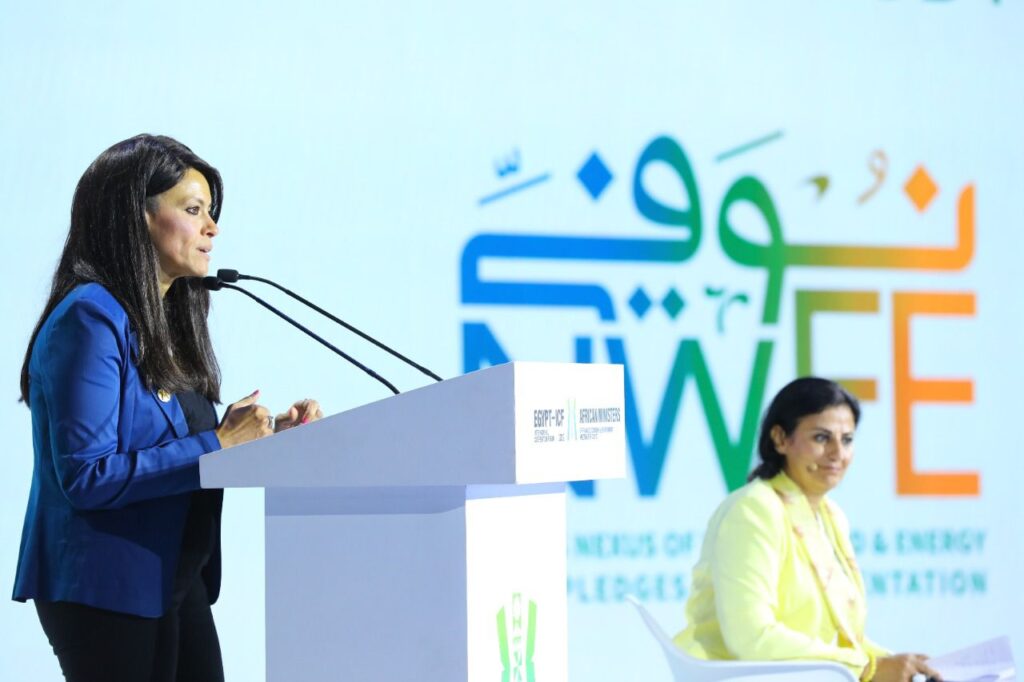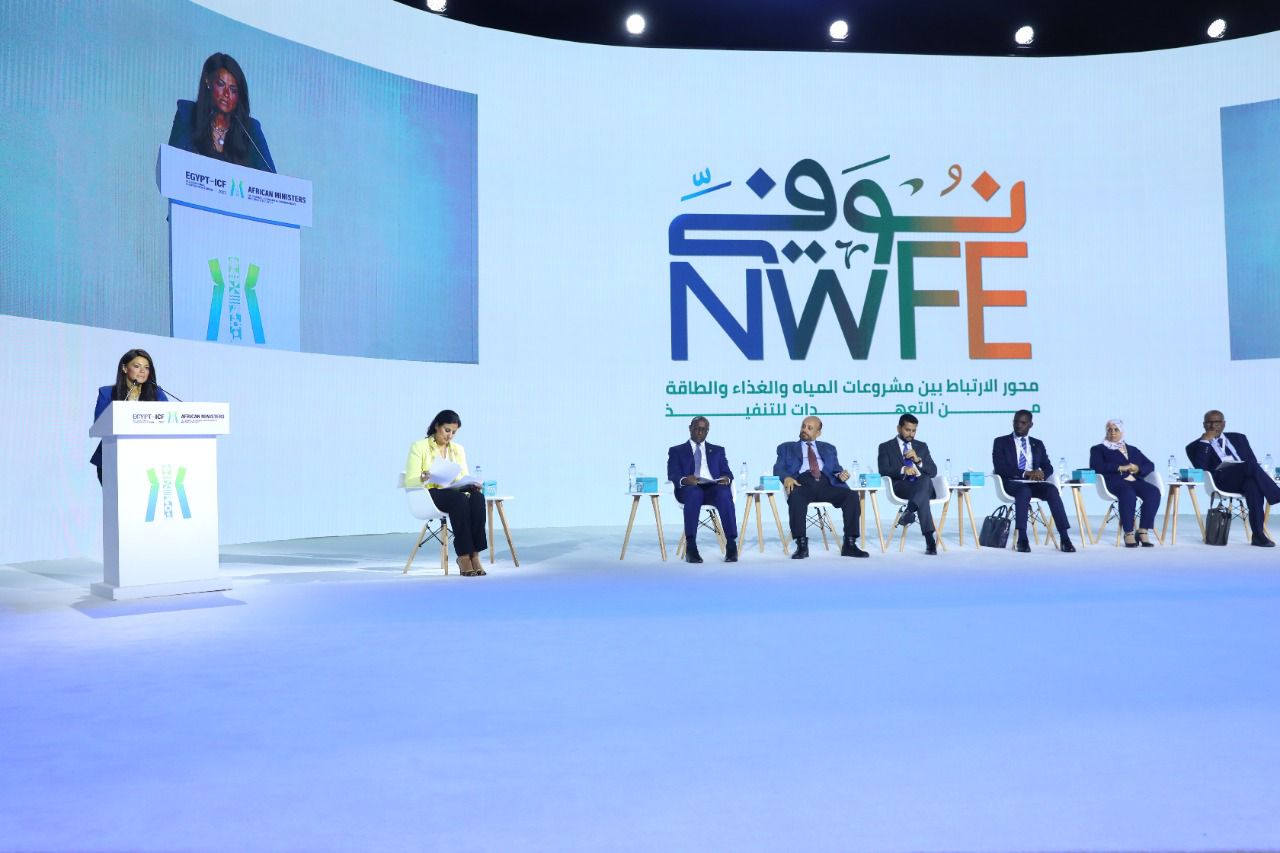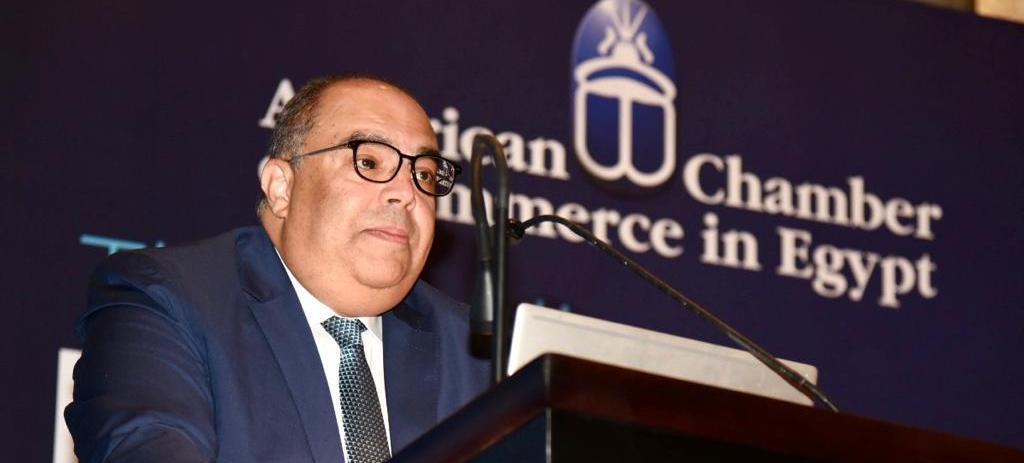Private sector investments in climate financing are high on Egypt’s agenda ahead of the UN Conference of the Parties on Climate Change (COP27) in November at Sharm El-Sheikh.
Marking two months ahead of COP27, Egypt’s Ministry of International Cooperation organized the second edition of the Egypt-International Cooperation Forum (Egypt-ICF 2022) to highlight the importance of accelerating climate action in Africa, particularly in Egypt.
The forum, held at Egypt’s New Administrative Capital, introduced two home-grown products to help investors utilize finances offered by development and multilateral partners, investment funds, philanthropies, public entities, and international financial institutions (IFIs). These tools offer a model to allow the African continent to convert climate pledges into implemented projects.
The first initiative announced during the Egypt-ICF is the Nexus on Water, Food and Energy (NWFE) program, a practical scheme to promote the implementation of green development projects in the vital sectors of water, food and energy by attracting foreign funds. Often dubbed “the green platform,” the NWFE was developed in line with the country’s sustainability goals, the UN global sustainable development goals (SDGs), and Egypt’s National Strategy for Climate Change 2050.

The NWFE platform is being implemented to lure in foreign investments and raise private sector participation through blended finance de-risking tools in development projects, Minister of International Cooperation Rania Al-Mashat told Business Monthly. Al Mashat added that the scheme will also mobilize concessional development finance for target areas like food, water, and energy, particularly renewable energy, food security, agricultural productivity, sustainable infrastructure, and transport, Al Mashat added. Concessional finance is below market rate finance provided by major financial institutions, such as development banks and multilateral funds, to developing countries to accelerate development objectives
The European Bank for Reconstruction and Development (EBRD), the African Development Bank (AfDB), and the International Fund for Agricultural Development (IFAD) is supporting the program through projects in energy, water, and food, respectively.
“NWFE aims to collect $10 billion to implement these projects [through] grants, soft financing, and private sector investments,” Al-Mashat explained.
Sharm El-Sheikh Guidebook for Just Financing
During the forum, Al-Mashat revealed the first draft of the Sharm El-Sheikh Guidebook for Just Financing, representing a first-of-a-kind national effort that charts a map for climate action financing amid the increasing threat of climate change.
This guidebook offers a practical framework to bring together all relevant parties in climate financing, enhance the availability of development finance in emerging economies, and promote investment opportunities in environmentally friendly sectors by determining action plans and operational measures that can be implemented by all parties.
This initiative falls within the framework of Egypt’s COP27 presidency, under the slogan “from pledges to implementation. Al-Mashat noted that the official launch of this guidebook is set to be during Finance Day, which will be held on the sidelines of the COP27.
“We are in a dire need to work together to create new ways of mobilizing capital to overcome long-standing barriers to sustainable development in Africa. This requires bold actions by donor governments and multilateral development banks to address the risks that the private sector cannot readily shoulder,” said Mark Carney, the UN Special Envoy on Climate Action and Finance, and co-chair for the Glasgow Financial Alliance for Net Zero (GFANZ), during September’s event.
In this respect, Carney announced the launch of GFANZ in Africa to accelerate climate action. GFANZ is a coalition of leading financial institutions committed to accelerating the net-zero transition.
AfDB strategy
During the forum, AfDB and the Ministry of International Cooperation launched the bank’s new five-year strategy for Egypt, covering 2022-2026. The plan focuses on enhancing the role of the private sector in Egypt’s development process by providing investments for green transition across all sectors, chiefly energy, and wastewater treatment, besides backing small and medium-sized enterprises (SMEs).
“Egypt’s new country strategy is founded on supporting the country to build a competitive and resilient economy to unlock the country’s growth potential and sustain its development,” Kevin Urama, AfDB’s Acting Chief Economist and Vice President for the Economic Governance and Knowledge Management Complex, told Business Monthly.
The strategy sets two areas of priority. The first is to strengthen Egypt’s competitiveness to support strong private sector-led growth and job creation, while the second area centers on building resilience to achieve food and water security and energy efficiency, Urama noted. He added that the strategy targets the industry, transport, water, and energy sectors.
“We seek to facilitate Egypt’s access to global climate and environment-related finances, as part of the country’s new climate strategy and action plan,” Urama explained.







